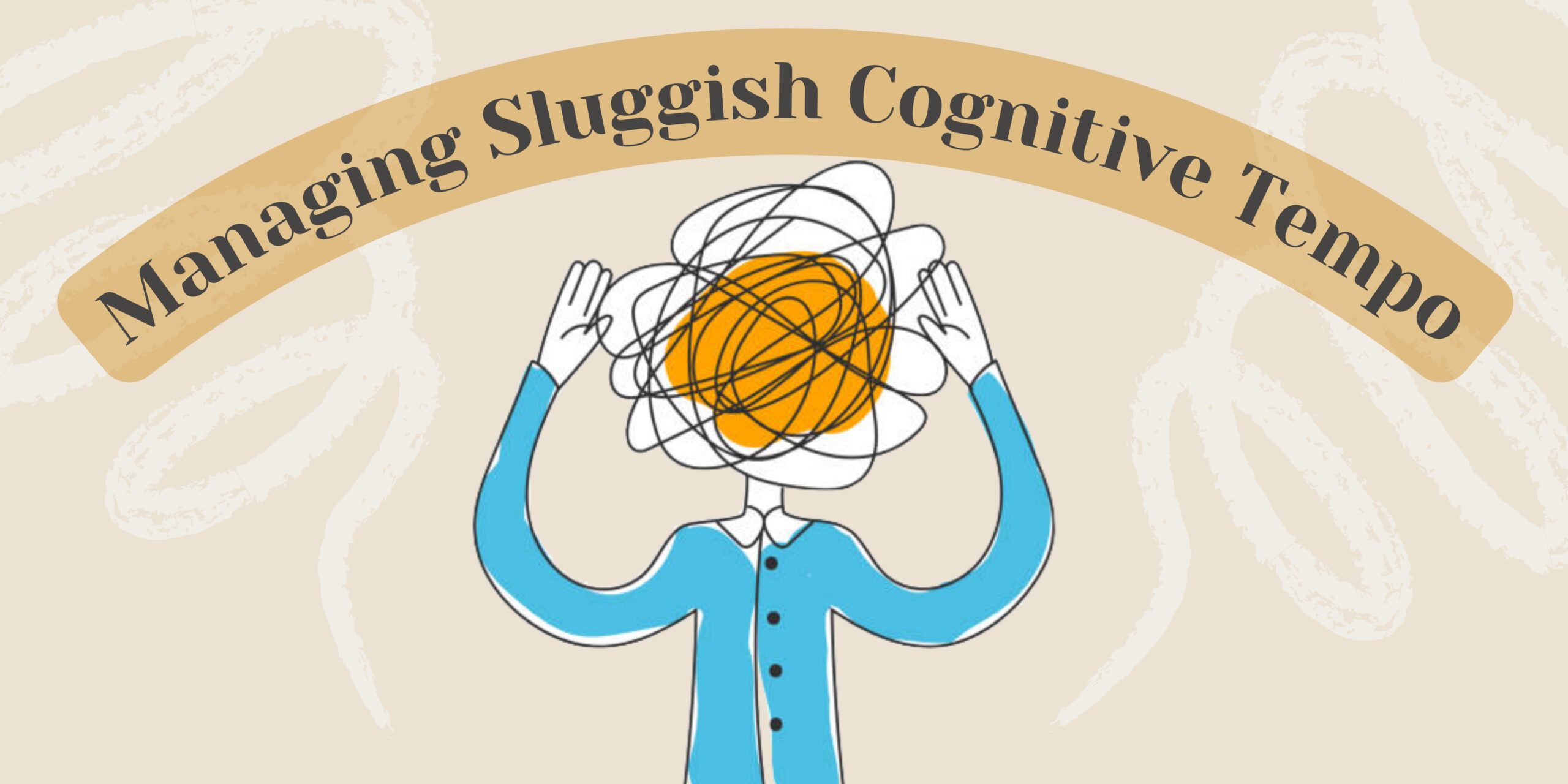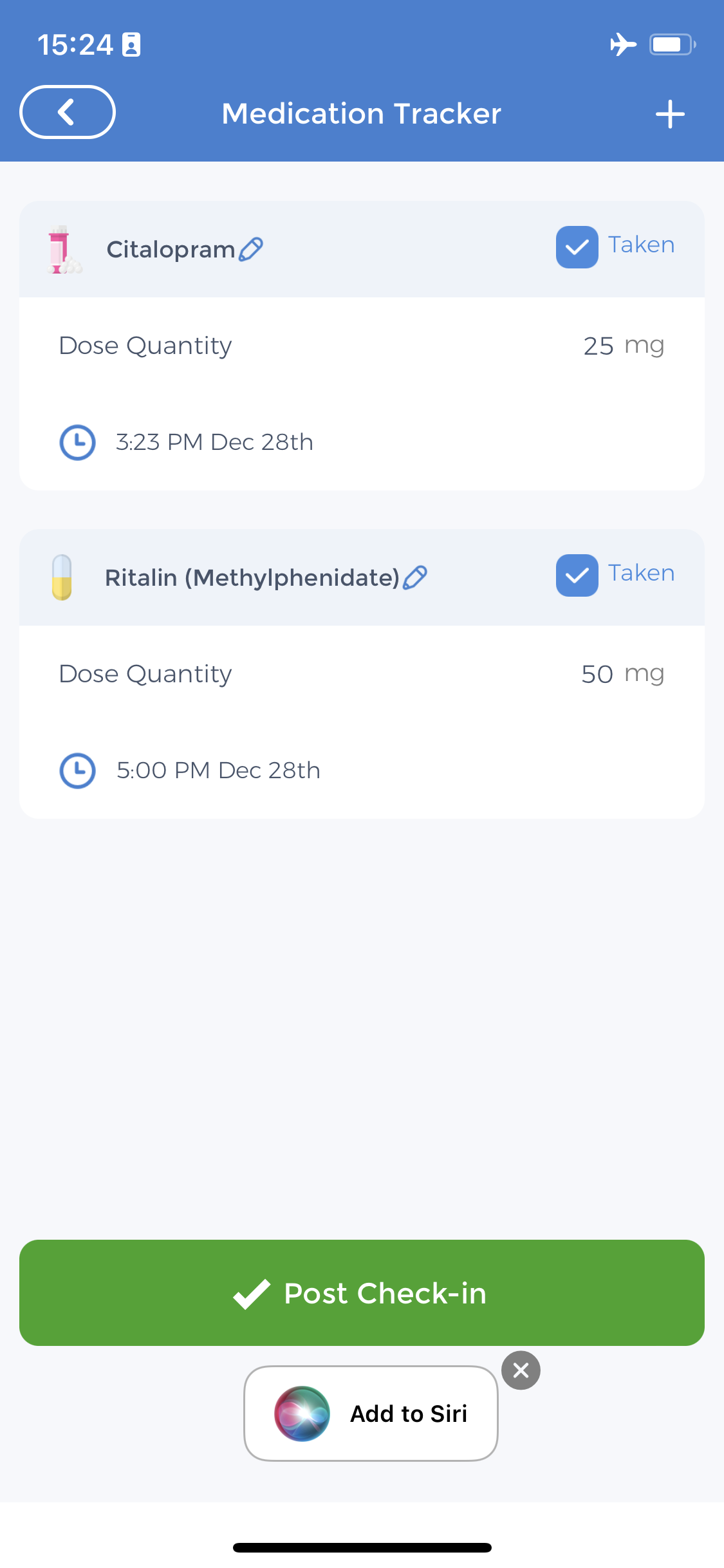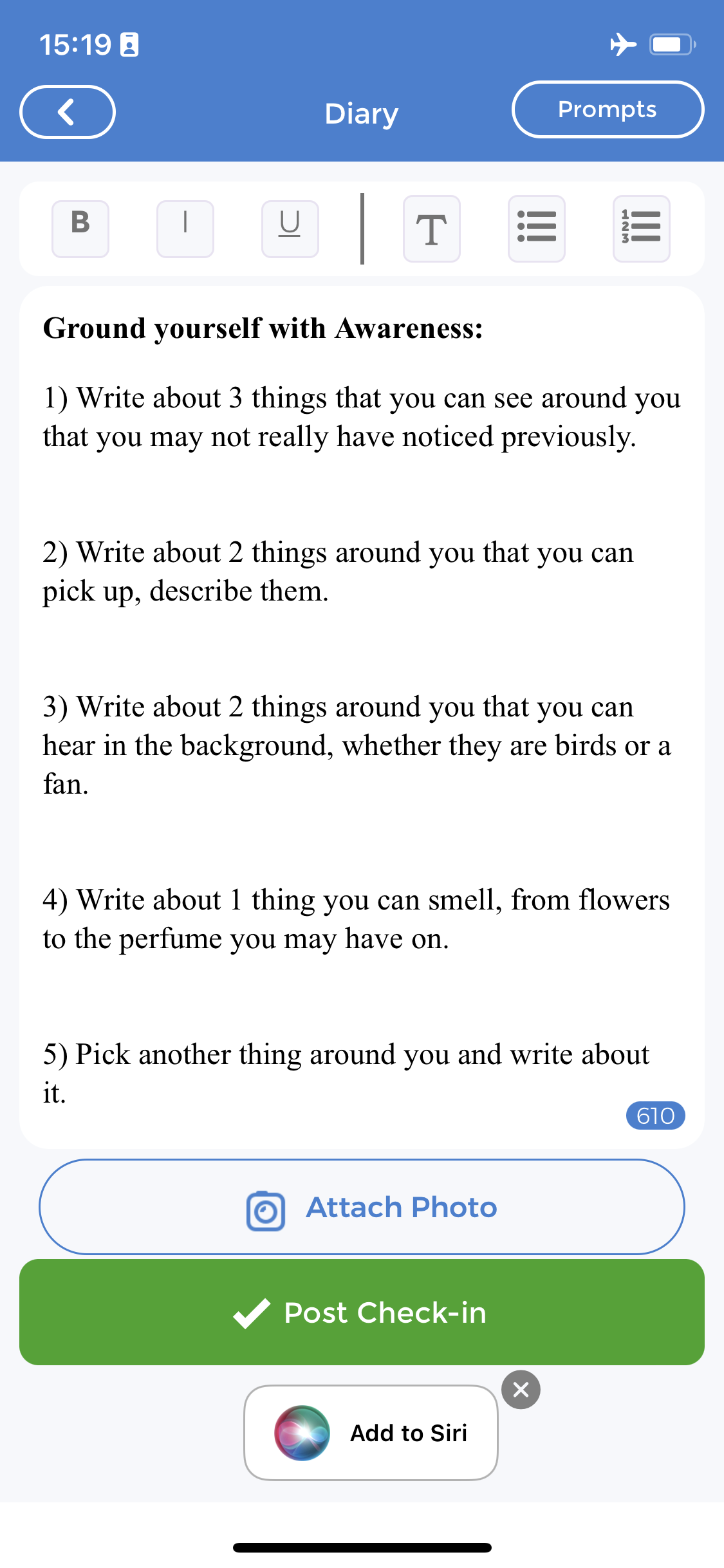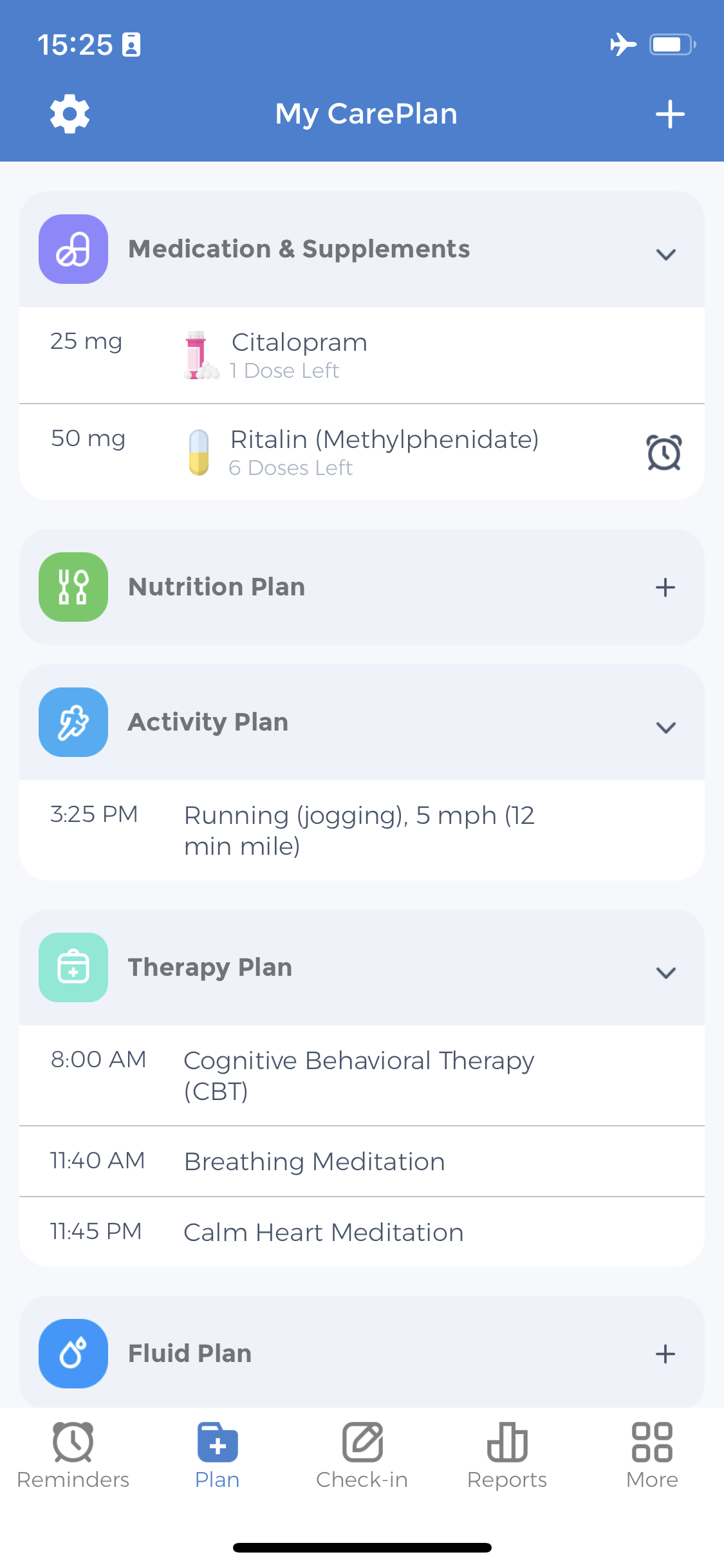
Do you often find yourself losing focus on tasks? Inability to maintain attention? Have to re-read the same paragraph for the fifth or sixth time? Or frequently daydreaming during an important meeting? If you had answered ‘yes’ to any of these, it may be a sign of Sluggish Cognitive Tempo (SCT). This article will provide you with insight on SCT and how to manage it effectively whilst utilizing the CareClinic app.
What is Sluggish Cognitive Tempo (SCT)?
Sluggish Cognitive Tempo is an attention disorder that closely resembles signs of Attention Deficit Hyperactive Disorder (ADHD); however, you can be diagnosed with SCT and not ADHD. Individuals diagnosed with SCT experience the following symptoms:
- Excessive daydreaming
- Lethargic behaviour
- Lack of motivation
- Low level of physical activity
- Easily distracted or confused
- Withdrawn, unmotivated, drowsy
- Poor memory retrieval
- Lost in own thoughts
- Staring blankly
- Difficulty expressing thoughts or losing train of thought
- Process information slowly
What causes Sluggish Cognitive Tempo?
A psychiatrist or psychologist diagnoses sluggish cognitive tempo after seeing a child or adult’s inattentive behaviour in the context of minimal hyperactivity or impulsivity. A questionnaire about the patient’s behaviour may also be requested from family members. Moreover, there is no formal diagnostic instrument for SCT. Symptoms are often matched to those of other illnesses, such as ADHD, mood disorders, and anxiety, to arrive at a precise diagnosis.
What’s the Difference between SCT and ADHD?
SCT and ADHD often get misinterpreted. Instead of being hyperactive, extroverted, obtrusive, extremely energetic, and risk-takers, people who have an SCT profile are wandering, absent-minded, listless, contemplative, and daydreamy. They appear out of it and as if they are in the fog.
The majority of people with SCT are naturally introverted. Many frequently misunderstand their short response time as a sense of isolation or indifference. Additionally, because of their social intrusiveness or aggressive behaviour, people with ADHD are more likely to be rejected in social situations.
ADHD patients, who are more prone than SCT patients to engage in antisocial behaviours including drug misuse, oppositional defiant disorder, or conduct disorder activities like lying, stealing, and fighting, may benefit from undergoing a neurodivergent test.
This assessment can offer insights into their specific challenges and tendencies. In terms of personality, ADHD is often associated with a heightened sensitivity to reward and enjoyment seeking, contrasting with SCT’s link to a greater responsiveness to consequences.
Lack of Attention in SCT
Individuals with SCT symptoms may have a qualitatively distinct type of attention deficit. This includes poor detail concentration or the ability to quickly differentiate significantly from unnecessary information. Attention deficits with these details are more indicative of a real information processing impairment. People with ADHD, on the other hand, have more trouble maintaining their focus and taking action toward their goals. This includes a lower tolerance to distractions. Those with traditional ADHD, unlike those with SCT, struggle with inhibition but have no trouble picking and filtering sensory input.
Both illnesses have a considerable impact on academic achievement, however, they do so in distinct ways. SCT may be more troublesome in terms of job efficiency, resulting in more mistakes. Conversely, ADHD may hurt productivity. This is defined as the amount of work completed in a given time.
People with SCT have a harder time remembering things they’ve learned before. They make more mistakes on memory recall tests than people with ADHD. Psychological tests requiring perceptual-motor speed or hand-eye coordination and speed have revealed that they perform significantly worse. They also have a chaotic mental process, a higher level of sloppiness, and are more prone to losing items.
ADHD Symptoms vs SCT Symptoms
The formal ADHD inattention symptoms and the SCT symptoms do not coincide. Both diagnoses refer to different attention issues. They can coexist within the same individual, but they can also exist independently. However, people with SCT are still being misdiagnosed due to their inattentive appearance.
What are the signs of ADHD?
- No attention to details
- Appears to not listen when spoken to directly
- Unable to follow through with instructions
- Trouble organizing tasks
- Forgetful in daily activities
- Trouble holding attention
- Avoid tasks requiring long mental effort
- Inability to remember things
- Easily distracted
- Fidgeting
- Inappropriate physical movement
- Unable to play quietly
- Extremely vigilant
- Talking excessively
- Blurts out words
- Impatient
What are the Symptoms of SCT?
- Prone to daydreaming
- Easily confused
- Mentally foggy
- Inattentive
- Blank stares
- Seems non-present
- Under-active
- Processes information not as quickly and accurately
- Slow-moving
- Sluggish
- Lethargic
- Less energetic
- Loses train of thought or cognitive set
Sluggish Cognitive Tempo Treatments
Although there is no standard, “one size fits all” treatment plan for SCT. Treating ability is most effective by monitoring and tracking the severity, frequency, and duration of your symptoms and the effects of your treatment plan. Sluggish Cognitive Tempo natural treatment plans include making lifestyle modifications and behavioural changes, which can be documented under CareClinic’s medication, nutrition & fitness tracker to assist in holistically tracking your health. These lifestyle modifications encompass:
Natural treatments for SCT
- Healthy sleeping habits
- Healthy diet
- Regular exercise
- Social therapy
- Special education classes
Sluggish Cognitive Tempo Medication
- Methylphenidate (Ritalin): This works by altering the concentrations of certain natural compounds in the brain. Methylphenidate is classified as a stimulant. It can help you improve your attention span, stay focused on a task, and manage behavioural issues. Additionally, Ritalin may also aid in task organization and the development of listening skills.
- Antidepressants: Antidepressants boost the action of substances in the brain called neurotransmitters. Increased activity of the neurotransmitters such as serotonin, norepinephrine, and dopamine work to help alleviate sadness and anxiety symptoms.
- Lisdexamfetamine (Vyvanse): Lisdexamfetamine is a stimulant for the central nervous system. It alters brain and nerve chemicals that cause hyperactivity and poor impulse control.
Certainly, medications have side effects. Some of the side effects of these medications include nausea, vomiting, constipation, stomach/abdominal discomfort, lack of appetite, dry mouth, headache, anxiety, dizziness, sleep disturbances, sweating, weight loss, irritability, and restlessness.
Medication is best used inconsistency. Adhering to a schedule and ensuring that medication is taken on time improves the effect of the medication. CareClinic’s most reputable feature is the ability to create your own personalized healthcare plan which your doctor and family members can gain access to, thus making treatment simple.
Therapy for SCT
Cognitive behavioural therapy (CBT) is a type of therapy that teaches you to notice and change unhelpful or negative thinking and behaviour patterns. It’s one of the most effective methods of psychotherapy. CBT seeks to assist in identifying and exploring how emotions and ideas influence behaviour. Patients may start learning to reframe their ideas more positively and helpfully once they detect these tendencies.
CBT is built on the concept that your ideas, emotions, and behaviours are all interconnected. To put it another way, how you think and feel about something might have an impact on what you do. The ability to modify these thinking and behaviour patterns is an important idea in CBT. You may wish to track your CBT therapy notes with CareClinic as well, specifically in the Diary section.
Cognitive Behavioural Therapy Techniques
CBT can be particularly helpful for patients with SCT as it helps identify underlying patterns resulting in inattentive behaviour. Typical treatments work by realizing how incorrect thinking may worsen difficulties. Overall, the techniques include finding methods for the following:
- Learning to better understand the thinking and motivations of self & others
- Approaching ways to tackle problem-solving scenarios
- Improving confidence and self-worth
- Learning how to approach challenges and fears
Not all of these tactics are used in every CBT session. It differs from one individual to the next. The psychologist and the patient work together to establish an understanding of the problem and a treatment approach in a collaborative manner.
Patients are assisted in developing coping skills through exercises in the session as well as chores outside of sessions, allowing them to learn to modify their thinking, troublesome emotions, and behaviour. CBT therapists focus on the person’s current situation rather than the events that lead up to their problems. Although some information about one’s past is required, the focus is generally on moving ahead in time to create more effective coping mechanisms.
Digital Health Support for Sluggish Cognitive Tempo
The CareClinic application serves as an all-in-one interface to monitor and support your treatment plan progress. CareClinic’s advanced symptom tracker feature allows you to create a daily log of the intensity, duration, and frequency of your symptoms.
Daily symptom logging in a timely essence enables a qualitative progress report producing a clear track record of your symptom’s inclination or declination. Likewise, SCT symptoms can interfere with documentation. CareClinic’s design allows you to set reminders for documentation.
Furthermore, with any treatment implementations in your lifestyle, you can also document your symptoms prior to, during, and after treatment to discover a more accurate progress report.
Sluggish Cognitive Tempo Symptom Tracking
The CareClinic’s symptom tracker feature can record not only your SCT symptoms but also track changes in symptoms after interventional treatment. This enables you to add any symptoms you feel before, during, and after treatment. The app will allow you to set a reminder(s) to check in with your symptoms. Frequent symptom tracking illustrates your progress for an accurate interpretation of any necessary adjustments through your healthcare provider.
Sluggish Cognitive Tempo Medication Tracking
CareClinic’s medication tracker allows you to search for the exact medication you are prescribed along with:
- Dose quantity
- Dose form (tablet, liquid, etc)
- Doses remaining
- Refill status
- When you started and completed your medication
 It’s wonderful to have a resource where you can keep track of your entire pharmaceutical history. It is a helpful reference tool that speeds up the retrieval of medical data. Furthermore, by using CareClinic to keep track of your past and present medications, you will limit the chances of misinterpretation. You’ll make your therapy run more smoothly and help you reach your health goals.
It’s wonderful to have a resource where you can keep track of your entire pharmaceutical history. It is a helpful reference tool that speeds up the retrieval of medical data. Furthermore, by using CareClinic to keep track of your past and present medications, you will limit the chances of misinterpretation. You’ll make your therapy run more smoothly and help you reach your health goals.
SCT can be unpredictable, so keeping track of your health is critical for progress. A medication journal keeps track of the medications taken on a regular basis. You can keep track of everything related to the medication you’ve consumed with CareClinic. The dosage, directions, purpose, side effects, and physician/pharmacist(s) who prescribe the drugs, as well as the relevant contact information, are all included (useful for refills). Any antidepressant or prescribed medications that are recommended by your doctor are entered here to keep track of your progress.
Medication records force you to keep track of your treatments. It improves drug adherence by allowing you to track the success of your treatment as well as its effects on your overall health.
This feature allows your healthcare provider to be well informed on your medication & side effects, making any necessary modifications to your dosage(s). Your medication and symptom log reflect whether you are responding positively or negatively, thus concluding whether to increase or decrease your medication dose. This ensures you receive the utmost care when managing SCT.
Tracking Sluggish Cognitive Tempo with a Diary
 Sometimes you may need to journal more information than the pre-set values provided. The diary function allows you to enter a descriptive, informative entry to post with an unlimited number of entries per day. This helps you to conveniently track your symptoms and be more aware of the symptoms you are experiencing to later add in your symptom tracker. SCT comprises a broad treatment plan and relatively general symptoms that may be hard to identify accurately. The diary entry feature allows you to explain your symptom log descriptively to better illustrate and identify your symptoms.
Sometimes you may need to journal more information than the pre-set values provided. The diary function allows you to enter a descriptive, informative entry to post with an unlimited number of entries per day. This helps you to conveniently track your symptoms and be more aware of the symptoms you are experiencing to later add in your symptom tracker. SCT comprises a broad treatment plan and relatively general symptoms that may be hard to identify accurately. The diary entry feature allows you to explain your symptom log descriptively to better illustrate and identify your symptoms.
Additionally, you can enter a descriptive log of your treatment plan to test if the combination of lifestyle changes and medication work to relieve your symptoms. This entails noting the advantages and disadvantages of different medication and non-medication interventions to evaluate which combination is best for you. These diaries may also be disclosed to your healthcare providers to gain their professional opinion and ultimately, a well-informed decision for yourself.
At times when you are feeling low, or even at your highs, you can utilize the journal prompts to provide yourself with an outlet for your emotional well-being and recovery. The journal prompts help to give you a head start on what to write about and elicit thought-provoking subjects that may be essential for your tracking. Moreover, the premium account gives access to 16 journal prompts. Here you can add lists, bold, italicize, highlight, and underline important statements/milestones to remember. Finally, you can add images that may range from positive quotes, and pictures, to anything else you may want to recall assisting in your recovery process.
Individualized Care Plans for SCT
 The care plan feature is the heart of the CareClinic platform. It allows you to keep your health in check, all in one concise place. Download now and follow along!
The care plan feature is the heart of the CareClinic platform. It allows you to keep your health in check, all in one concise place. Download now and follow along!
On the bottom of the app, there is a ribbon with a “plan” tab. Clicking on that button leads to a page called “My CarePlan.” Many features can be added to your personal care plan. This is unique for each individual according to your needs. Furthermore, medicines and supplements, a nutrition plan, an activity plan, a symptom check, and a measurement check are all check-ins you can make within the application.
A symptom check is an extremely crucial tool for SCT symptom tracking. An incoming burst of symptoms can be the first indication of the underlying differences between ADHD and SCT. You can identify patterns to avoid in the future by tracking the downtimes of the day when you experience these symptoms.
Keeping a constant track of symptoms can help healthcare providers make informed and correct decisions, hence reducing recovery time.
Check-in with the app every day and if you forget you fear not, the app will send a reminder. The check-in will link to an existing care plan you created. Additionally, if you do not want to create your own care plan there are also hundreds of pre-existing care plans to choose from. These unique care plans each have a set of activities and customizable features according to your healthcare needs.
Tracking Sluggish Cognitive Tempo
Within your healthcare plan, you have the option to disclose your records to your caregivers ranging from doctors to family members. Individuals can add information to your plan, allowing for cohesive care and an easier method of the track. The most important value of the care plan is that it provides a clear picture of your medical history and needs in one spot.
Adding your nutritional intake and fitness tracking on top of your symptoms and treatment log is useful in interpreting your response to them. As a result, this additional information allows your doctor to monitor your progress at a closer lens. This will enable you to have a better illustration of your lifestyle and reflect accordingly to make informed decisions if any.
Sluggish Cognitive Tempo is a discrete attention disorder that takes time to learn to have. Therefore, the best thing you can do to manage SCT is to track your symptoms, treatment plan, diet and exercise for a promising future. You can start by downloading the CareClinic app by clicking here.


